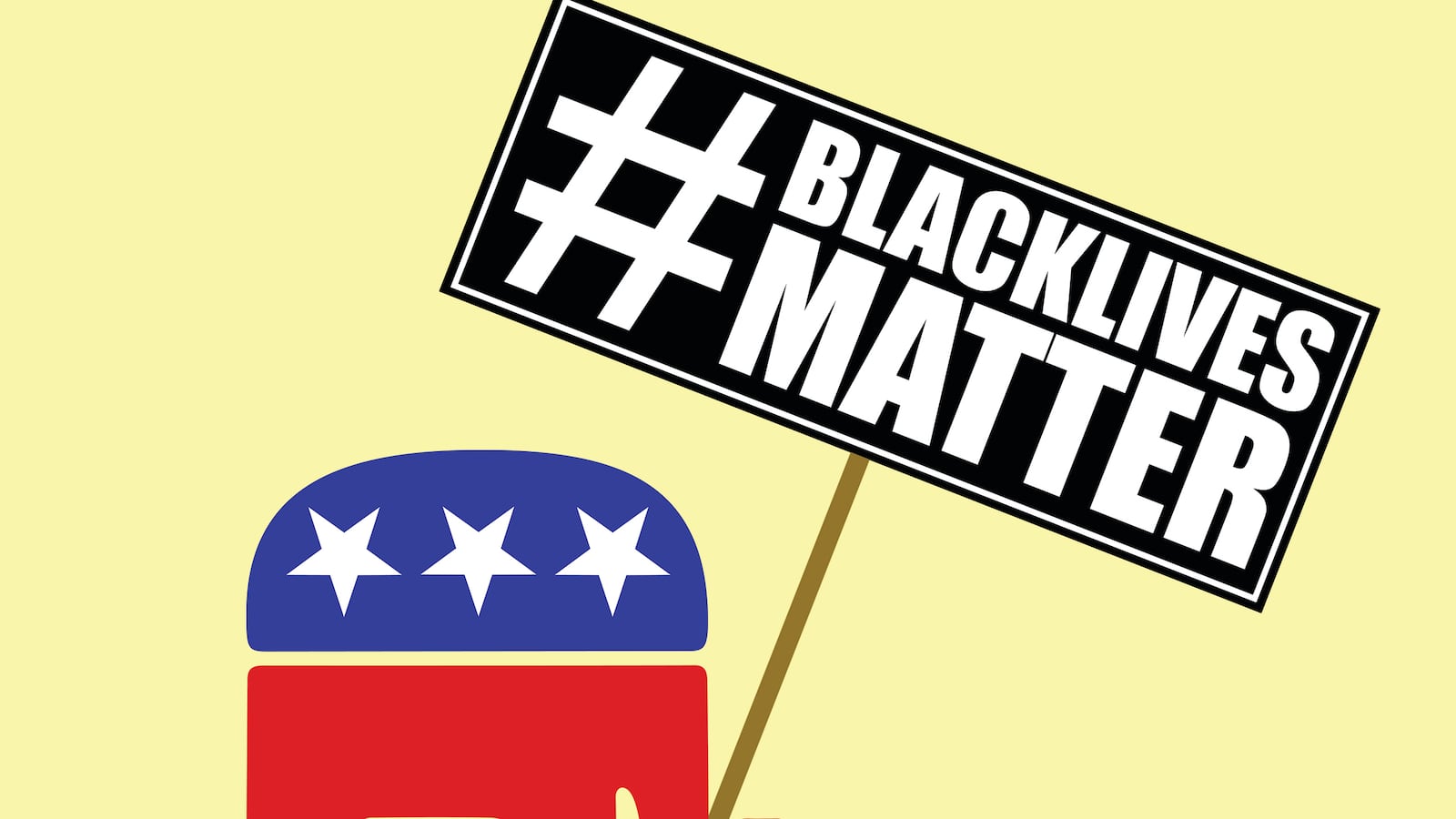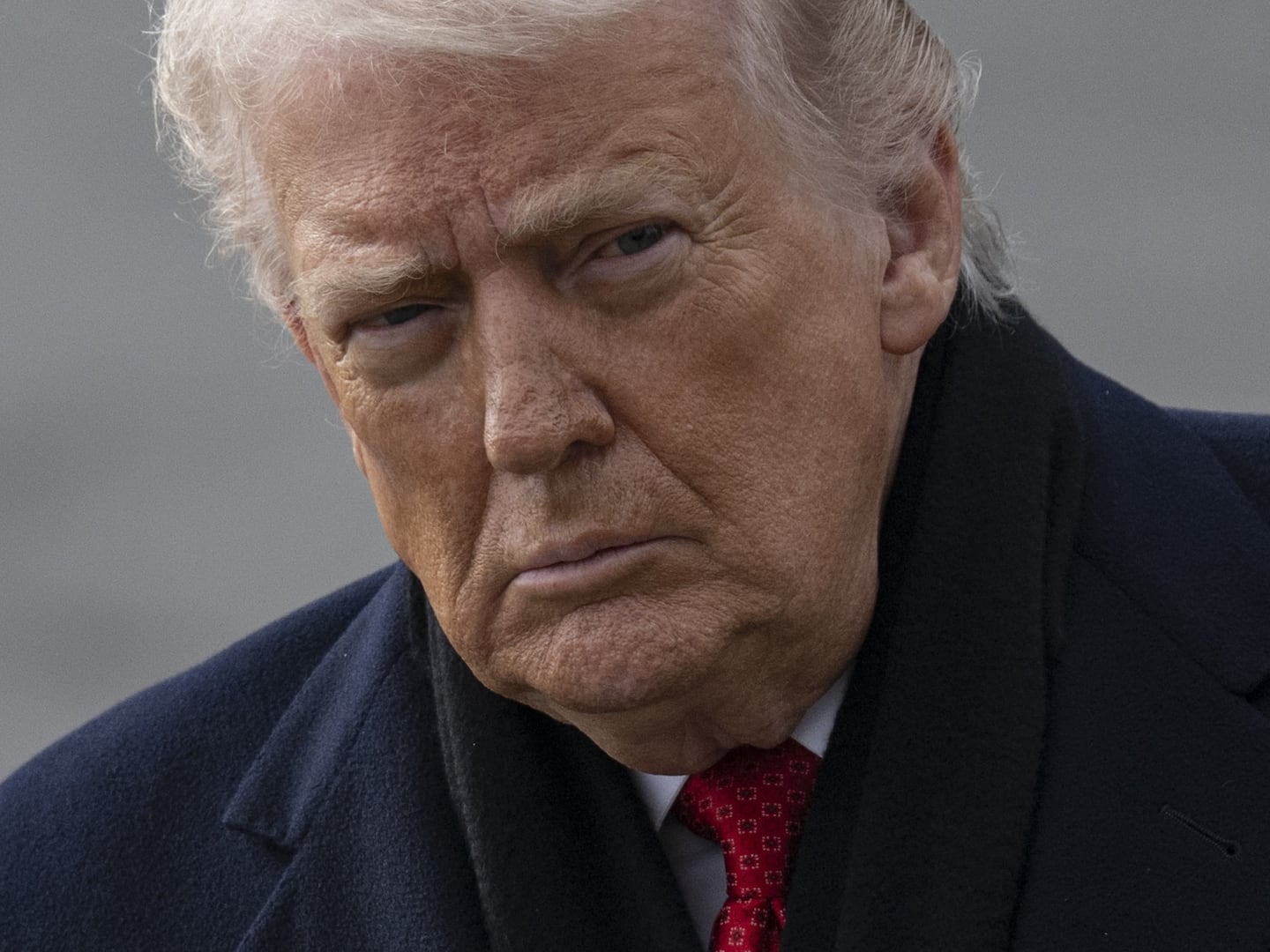The Black Community does not need more Horatio Algers. We need fewer deaths like Michael Brown’s.
August 9 marks the one-year anniversary of the shooting of Michael Brown. Just days before, the Republican presidential candidates had a prime opportunity during their three hours of debating to express their support of the #BlackLivesMatter movement. Yet the movement warranted just one question and one candidate response—or less than a minute—in the GOP’s two debates, which featured 17 candidates and roughly 60 questions.
“Many in the #BlackLivesMatter movement and beyond believe that overly aggressive police officers targeting young African Americans is the civil rights issue of our time. Do you agree, and if so, how do you plan to address it? If not, why not?” said debate co-moderator Megyn Kelly to Wisconsin Governor Scott Walker.
Walker replied: “It’s about training. It is about making sure that law enforcement professionals…have the proper training particularly when it comes to use of force and that we protect and stand up and support those men and women who are doing their jobs in law enforcement. And for the very few who don’t, that there are consequences to show that we treat everyone the same here in America.”
This was all that the GOP cared to discuss about #BlackLivesMatter. This question appeared to be a sad attempt at appeasing black voters, while also avoiding any substantive debate on the topic. Walker’s response reduced the cries of the entire movement to merely a handful of rogue police officers who have failed to receive adequate training. And he also said “we treat everyone the same here in America.” If there was any doubt about how significantly the GOP values the voices of the African-American community prior to this debate, there should not be any now.
More candidates were asked about how often they converse with the Almighty than about the significance of #BlackLivesMatter. Senator Ted Cruz, Governor John Kasich, and Dr. Ben Carson all gave circuitous responses that implied some degree of divine intervention and/or a need for national unity.
Much of the debate carried this farcical tone, with the high points mostly being Donald Trump’s impressive ability to consistently dodge questions without saying anything of merit.
Based upon Thursday’s exploits, most of the Republican presidential candidates appear more consumed with a delusional quixotic quest to “restore the American Dream” or “Make America Great Again” than they are about confronting the incredibly real and life-threatening obstacles that the black community disproportionately faces in this country. And this brings us back to Dr. Ben Carson.
If the GOP wants any hope of reclaiming the White House they will have to fare better than Mitt Romney did in 2012 when he garnered an abysmal 17 percent of all minority voters and at one point trailed President Obama 94 percent to 0 amongst African Americans.
Carson, a modern-day Horatio Alger, seems to be the GOP’s only attempt at reaching out to black voters. His story of rising up from poverty to becoming a successful surgeon and now a presidential candidate could make more African Americans give the GOP a second look. But Carson’s disconnect with the black community at large shows the folly in this approach.
On Meet The Press this past weekend host Chuck Todd grilled Carson over claims that he called the movement “silly.”
“I don’t recall calling it ‘silly,’ but what I called silly is political correctness going amuck,” said Carson. “That’s what’s silly…I guess it was Martin O’Malley who said, you know, ‘black lives matter, white lives matter,’ he got in trouble for that and had to apologize. That’s what I’m talking about is silly. Of course all lives matter.”
And then Carson bizarrely concluded his point by adding, “You know, for a young black man, the most likely cause of death is homicide. That is a huge problem that we need to address in a very serious way.”
This convoluted response from earlier in the week displays a key misunderstanding of the #BlackLivesMatter movement by its detractors. Carson and others have chosen to interpret the message of the movement as implying that black lives matter more than the lives of non-blacks, when in fact the purpose of the movement is to remind and make visible to Americans that black lives also matter, or matter as much as white lives. The implication is that there is a neglecting of black life in this country, and that we need change so that black life can receive a parity of treatment comparable to non-black life, or more specifically to white American life.
Carson became lost in the semantics and messaging of the movement and dismissed it as “political correctness going amuck,” yet at the same time he remained aware of some of the disturbing hurdles black men face in this country as they hopefully pursue the American Dream. Carson’s failure to understand the very basics of the movement is alarming because how is he supposed connect with black voters and explain how you can elevate your station in life if he casually dismisses the issues that matter most to them?
Carson is the embodiment of the narrative that should sway black voters, but his disregard toward #BlackLivesMatter shows a flaw in the Horatio Alger story that the GOP is so desperate to sell. Carson’s path from rags to riches also includes a distance from the black community from which he came and to which he still belongs. The racial inequalities and injustices highlighted by #BlackLivesMatter show that an individual’s wealth may not protect him from these dangerous oppressive forces.
Black Americans, and numerous Americans of all races, have taken to the streets, peacefully protested, and had countless discussions on this topic over the past year since the death of Michael Brown, but the GOP doesn’t understand what all the noise is about.
The message of expanding the American Dream that Republicans profess ad nauseam has very little appeal to the black community. We do not need a new American Dream, or a Horatio Alger myth, we need an improved American reality. It is unfortunate that the GOP does not appear to understand this.






